Back to the routine after the holidays with my dog
Dogs are creatures of habit and suffer from sudden changes in schedules or routines
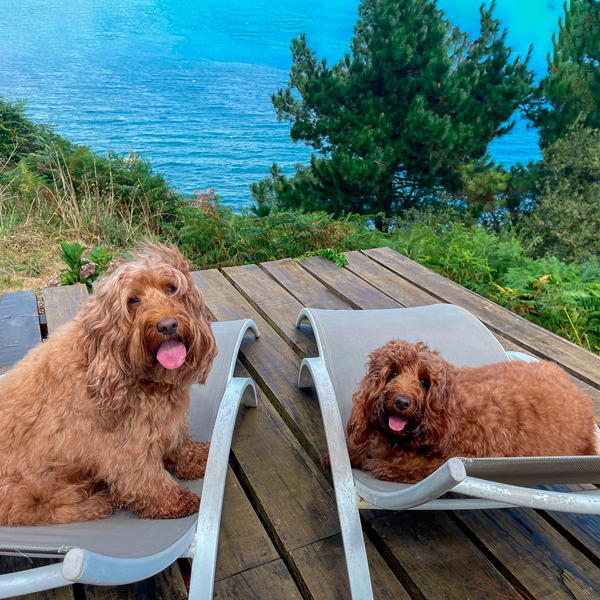
POST-HOLIDAY SYNDROME IN DOGS
Reading time about 8 minutes
You've probably heard of post-holiday syndrome or perhaps you've even experienced it in your own flesh. Did you know that your dog can also suffer from it? During the holidays, our pets' schedules and routines are very altered, with the aggravating factor that they can't understand what is happening to make everything change so suddenly. However, since these alterations normally occur in a positive way (more time with their owners, more stimuli, longer walks, etc.), it is when dogs must return home that they can suffer the impact of this change in their routine.
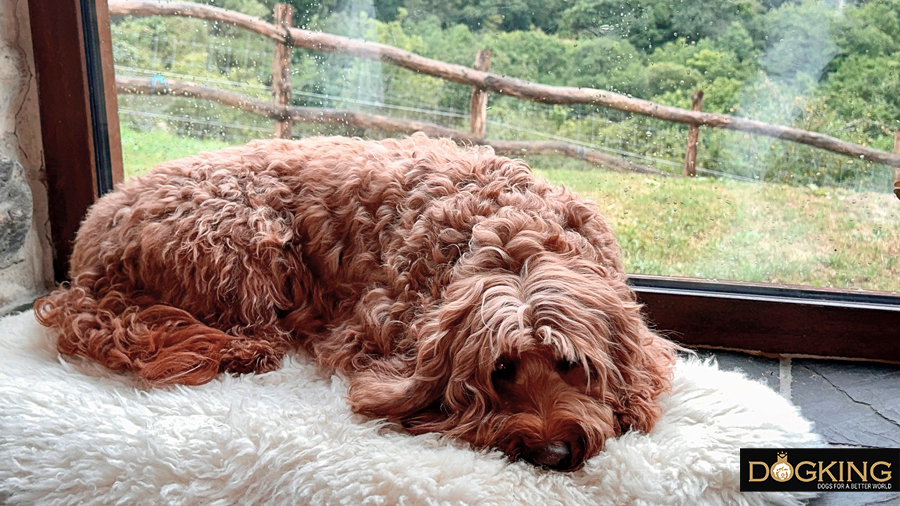
Table of contents
1- Symptoms of post-holiday stress in dogs and how to cope with it
2- Is it advisable to take your dog on holiday with you?
Symptoms of post-holiday stress in dogs and how to cope with it
Now that the happy days of holidays and relaxation have come to an end, your pet may have to face a huge change in its habits. Surely, now your dog will have to spend much more time alone, the walks will be shorter and less stimulating, and it won't enjoy so much attention from you. To accompany your beloved friend in its adaptation process, you will have to give it all your love, patience and understanding.
Keep in mind that dogs benefit from routines, which they need to manage their emotions and regulate their behaviour. Normally, holidays last a few days and, however idyllic they may be, your dog won't have time to adapt to the new environment. And then, shortly afterwards, your dog must change everything again to return to its old life. This situation can be very stressful for your pet, so we recommend you take into account the following tips if you notice any of these symptoms in your dog. This will facilitate the adaptation process to make it as fast and pleasant as possible.
Apathy and lack of energy
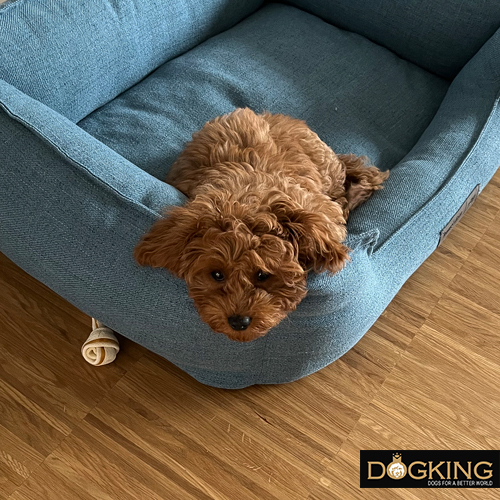 As a result of all the changes your dog has undergone in a short time, you may notice your pet is listless, unwilling to move much and indifferent to games that used to motivate it. You may see your dog sleep more than usual and it may be sad and apathetic. Think that your dog can no longer spend as much quality time with you as before, so it will miss you. The animal may also feel bored or unmotivated by such an abrupt cut in the amount of stimulation it experienced during the holidays.
As a result of all the changes your dog has undergone in a short time, you may notice your pet is listless, unwilling to move much and indifferent to games that used to motivate it. You may see your dog sleep more than usual and it may be sad and apathetic. Think that your dog can no longer spend as much quality time with you as before, so it will miss you. The animal may also feel bored or unmotivated by such an abrupt cut in the amount of stimulation it experienced during the holidays.
What to do: Try to make the change as gradual as possible for your pet. For the first few days, spend more time with your dog than usual and make sure it feels stimulated, for example, by extending the walks or taking it somewhere the animal knows but hasn't been for a long time. You can also try to buy your dog new toys that it likes or use one that the animal hasn't played with in a long time. In the same way, find something your dog will really enjoy.
Dependency and care-seeking
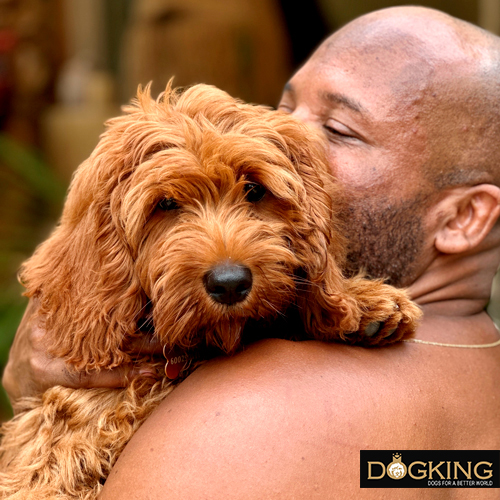 If your dog has always enjoyed your company, but when you come back from holiday you literally can't get rid of your pet, it means the animal misses you very much. When you return to your work and duties, you will have stopped spending so much time with your dog. You'll be clear about the reason, but your furry friend won't understand anything at all. As a result, you may notice that your pet is more attached to you, follows you everywhere and behaves in a jealous or territorial way with you when you are with other people.
If your dog has always enjoyed your company, but when you come back from holiday you literally can't get rid of your pet, it means the animal misses you very much. When you return to your work and duties, you will have stopped spending so much time with your dog. You'll be clear about the reason, but your furry friend won't understand anything at all. As a result, you may notice that your pet is more attached to you, follows you everywhere and behaves in a jealous or territorial way with you when you are with other people.
Lack of appetite
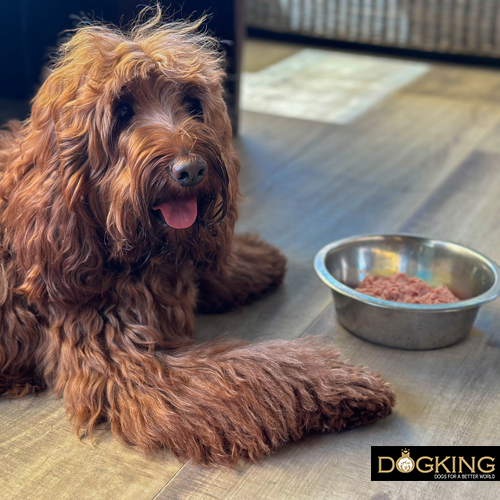 Lack of appetite and refusal of food is one of the most worrying symptoms of post-holiday symptoms in dogs. Your dog's mealtimes have probably been disrupted during the holidays. Perhaps you have even overindulged the animal with snacks or treats, and with the new routine, your dog shows no interest in its usual food or isn't hungry at the new mealtimes. This reduced food intake can cause your dog to be listless and depressed.
Lack of appetite and refusal of food is one of the most worrying symptoms of post-holiday symptoms in dogs. Your dog's mealtimes have probably been disrupted during the holidays. Perhaps you have even overindulged the animal with snacks or treats, and with the new routine, your dog shows no interest in its usual food or isn't hungry at the new mealtimes. This reduced food intake can cause your dog to be listless and depressed.
What to do: As feeding is a very important issue and feeding disruptions can cause many problems for your pet, we recommend that you try, as far as possible, to keep to your pet's feeding schedule even on holiday. You can buy portable feeders that fold up and don't take up any space and always carry some food or wet food in your backpack to feed your dog at the time it is used to. Just look for a quiet place where it feels safe and where there is no intense exercise for a couple of hours to ease digestion and more serious problems such as stomach twisting. At home, try to get back into a routine as soon as possible and consult a veterinarian if the lack of appetite persists for several days.
Lack of sphincter control
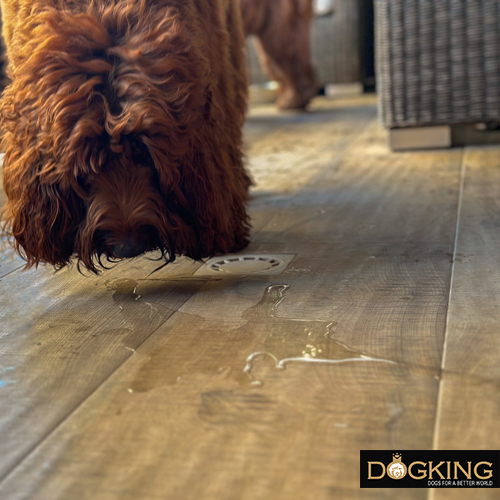 Some dogs may feel very disorientated when they return home from holiday. So much so that they may even forget long-established habits such as urinating or pooping outside the house. If you find a little present from your dog at home when you get back to your routine, don't be alarmed or angry with the animal, it is probably due to post-holiday syndrome. In fact, just like mealtimes, this is another aspect of your dog's life that shouldn't change, even on holiday. Taking your dog out to relieve itself is essential in any situation, so don't allow your dog to hold off on going out later on holiday, as it may be able to do it this time, but it may not be so lucky when it has to change its schedule again when returning home.
Some dogs may feel very disorientated when they return home from holiday. So much so that they may even forget long-established habits such as urinating or pooping outside the house. If you find a little present from your dog at home when you get back to your routine, don't be alarmed or angry with the animal, it is probably due to post-holiday syndrome. In fact, just like mealtimes, this is another aspect of your dog's life that shouldn't change, even on holiday. Taking your dog out to relieve itself is essential in any situation, so don't allow your dog to hold off on going out later on holiday, as it may be able to do it this time, but it may not be so lucky when it has to change its schedule again when returning home.
What to do: In the first few days after returning from holiday, try to take your dog out more often to find the right time when it feels like relieving itself, as by now the animal probably has a mess on its mind. You can space out the outings until you get back to normal. This way you will avoid accidents and unnecessary suffering of your pet when it has the urge to relieve itself.
Hyperactivity and nervousness
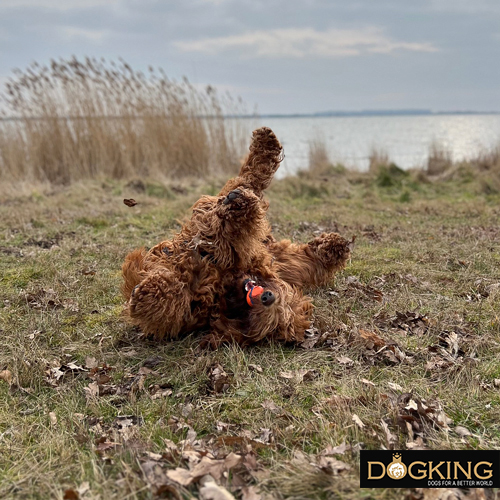 Some dogs are down when they return from holiday, but others are just the opposite. You may notice your pet is overly energetic and nervous. Your dog may bark more than usual or chew on things when it didn't before. In these cases, it is likely that your dog is reacting to a sudden decrease in its activity level. Holidays are filled with long walks, runs in the mountains and on the beach, jumping and playing. But when you get back to the routine, you may not be giving your dog the activity it needs to make a proper transition.
Some dogs are down when they return from holiday, but others are just the opposite. You may notice your pet is overly energetic and nervous. Your dog may bark more than usual or chew on things when it didn't before. In these cases, it is likely that your dog is reacting to a sudden decrease in its activity level. Holidays are filled with long walks, runs in the mountains and on the beach, jumping and playing. But when you get back to the routine, you may not be giving your dog the activity it needs to make a proper transition.
What to do: In the first few days, try to get your dog to exercise more than before going on holiday. Extend the walks and suggest games that require running or jumping. This way your dog will burn more energy and manage its frustration and anxiety through physical activity.
Is it advisable to take your dog on holiday with you?
If you have an extroverted, sociable, young or adult dog that enjoys new environments and stimuli, there will be no problem taking your dog with you on holiday, just follow the advice we have given you and accompany it with lots of affection in the adaptation process, which will be brief and not too intense. The Australian Cobberdog, for example, is a very happy and sociable dog that adapts easily to new surroundings. Like all dogs, the animal needs regularity in its habits, but with a lot of loving care and attentions, it will quickly return to be the same as always.
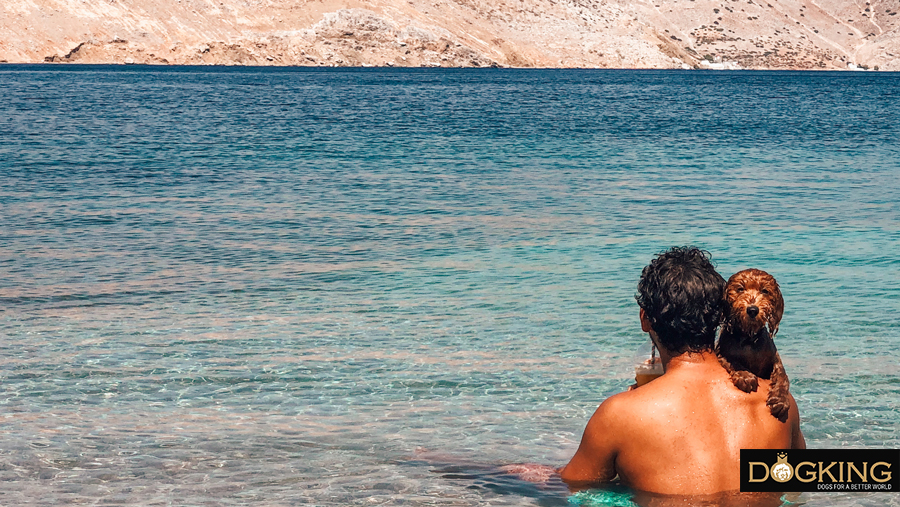
However, if your pet is very shy, anxious, elderly or has health problems, you may want to consider having it accompany you on holiday. Your dog will probably be better off in the company of a loved one it knows and, although the animal will miss you a lot, at least it won't suffer from the alteration of its habits, something that in some dogs can be very intense and difficult to manage.
Lastly, if you notice that your pet is still not feeling well, without appetite or feeling weak several days after returning from your holiday together, it wouldn't hurt to have a check-up at the vet to rule out typical problems during holiday periods (digestive disorders, bites, parasites, muscle pain, sunstroke, etc.).